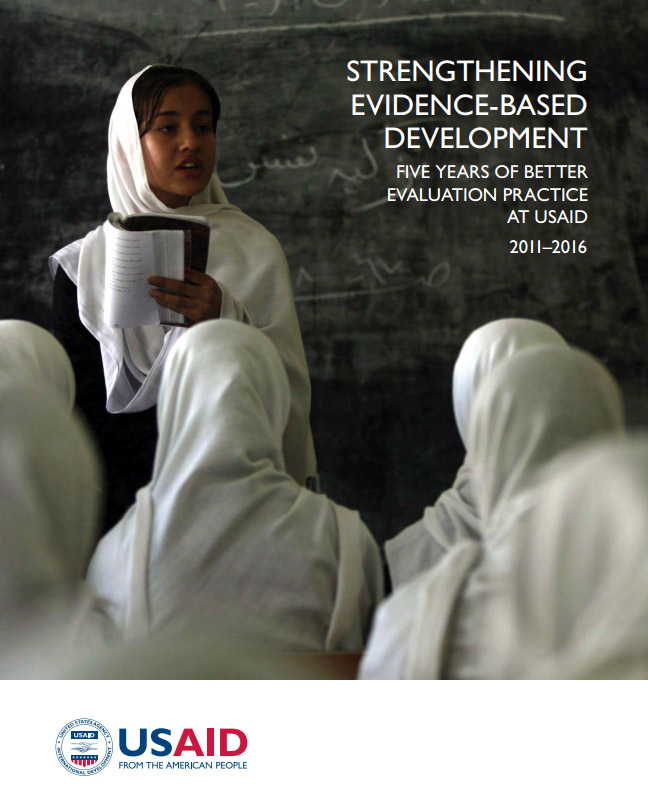Speeches Shim
Strengthening Evidence-Based Development ![]() (pdf - 4 MB)
(pdf - 4 MB)
USAID’s decisions about where and how to invest foreign assistance resources should be based on analysis and conclusions supported by evidence. Analysis refers to formal assessments, evaluations, and studies conducted by USAID or other development actors. It also includes structured thinking based on experiences, insights, and internalized knowledge, as well as consultations with key stakeholders.
USAID's guidance requires a CDCS be grounded in evidence and analysis, and encourages Missions to draw evidence from third party assessments and/or evaluations, including those prepared by government sources, civil society, the private sector and other donors, to complement the Mission's own assessments. ADS 201 identifies the first stage of the CDCS process as the appropriate time for a review of evidence from existing sources, including "findings from evaluations (commissioned by the Mission and others)."
For a busy Mission staff, obtaining evaluations and extracting evidence from them can be a challenge. Two pages will help you with these tasks:
Consider as well
- Promoting evidence-based decision-making in development agencies: An Overseas Development Institute Briefing Note that explores recent research findings on this topic.
- Evaluation Utilization at USAID
Aid for Trade at a Glance, a joint publication of the WTO and the OECD, provides a useful annual update on trends each year, and its release is often accompanied by speeches and papers that are available through the OECD website
Missions that are contemplating a trade dimension in their CDCS strategy, particularly a trade facilitation focus, will also need access to up-to-date information and evidence on this rapidly evolving field. Useful links to a wide range of organization webpages that are tracking aid for trade and trade facilitation research and initiatives are shown below.
| << CDCS - Country Development Cooperation Strategy | Up | Locating Evaluations >> |


Comment
Make a general inquiry or suggest an improvement.